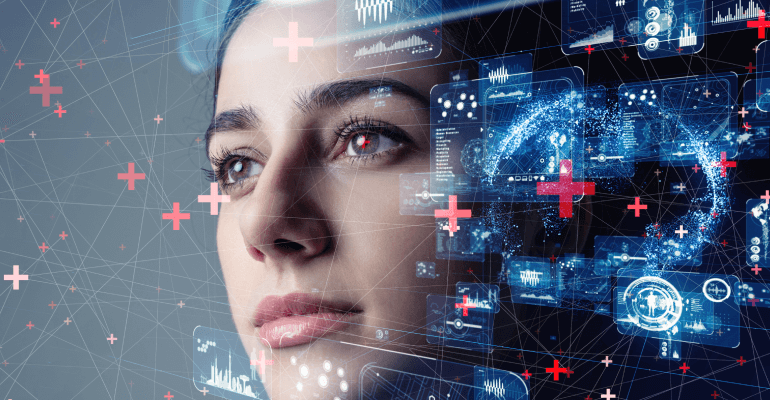How Online Face Recognition Is Transforming Healthcare Industry
In recent years, the use of online face recognition technology has become more widespread, with many industries seeing its potential. One of the areas where it is having a significant impact is in healthcare. Online face recognition is transforming the healthcare industry by improving patient care and security, streamlining administrative tasks, and enhancing research capabilities.
Online face recognition technology has a variety of applications in healthcare, including patient identification and security, biometric authentication, and research. It is a powerful tool that can help healthcare providers offer better care to their patients and streamline administrative tasks.
- Patient Identification and Security:
Online face recognition technology has made it easier for healthcare providers to identify patients quickly and accurately. This is particularly important in emergency situations where time is of the essence, and patients may be unable to provide identification or medical history. By using face recognition online, healthcare providers can access a patient’s medical records and history, allowing them to provide the best possible care.
Online face recognition also helps improve security in healthcare facilities by ensuring that only
authorized individuals have access to patient information and medication. This helps prevent identity theft and ensures that patients’ privacy is protected.
- Biometric Authentication:
Biometric authentication is becoming increasingly popular as a way to secure sensitive data and protect against identity theft. Online face recognition is a valuable tool for biometric authentication in healthcare. By using face recognition online, healthcare providers can authenticate patients, healthcare providers, and other staff members, ensuring that only authorized individuals have access to sensitive information.
- Research:
Online face recognition is also revolutionizing the way research is conducted in the healthcare industry. By using face recognition online, researchers can quickly and accurately identify study participants, which can help improve the accuracy and reliability of research results. Additionally, online face recognition can help researchers track the progress of study participants over time, which can provide valuable insights into the effectiveness of treatments and therapies.
- Streamlining Administrative Tasks:
Online face recognition is also helping to streamline administrative tasks in healthcare. By automating tasks such as patient check-in and data entry, healthcare providers can save time and reduce the risk of errors. Additionally, online face recognition can help providers manage patient records more efficiently, allowing them to easily access and update information as needed.
- Contactless Check-In:
Online face recognition has also become a valuable tool for contactless check-in, which has become increasingly important during the COVID-19 pandemic. By using face recognition online, healthcare providers can eliminate the need for patients to touch surfaces or handle physical paperwork during the check-in process. This not only reduces the risk of transmitting the virus but also makes the check-in process faster and more convenient for patients. Contactless check-in can also free up healthcare staff to focus on more critical tasks, such as patient care.
However, despite these benefits, there are also concerns about the use of online face recognition in healthcare. One major concern is the potential invasion of patients’ privacy. Some worry that the technology could be used to collect and store patients’ facial data without their consent. Additionally, there are concerns about the accuracy of online face recognition, particularly when it comes to recognizing individuals from different racial and ethnic backgrounds.
To address these concerns, healthcare providers and technology companies are working to develop policies and procedures that ensure the ethical use of online face recognition in healthcare. They are also working to improve the accuracy of the technology, particularly for individuals from underrepresented groups.
In conclusion, online face recognition is transforming the healthcare industry by improving patient care and security, streamlining administrative tasks, and enhancing research capabilities. While there are concerns about the use of the technology, these can be addressed through thoughtful policies and procedures that ensure the ethical use of online face recognition. As the technology continues to evolve, it has the potential to revolutionize healthcare and improve patient outcomes for years to come.


Comments are closed.